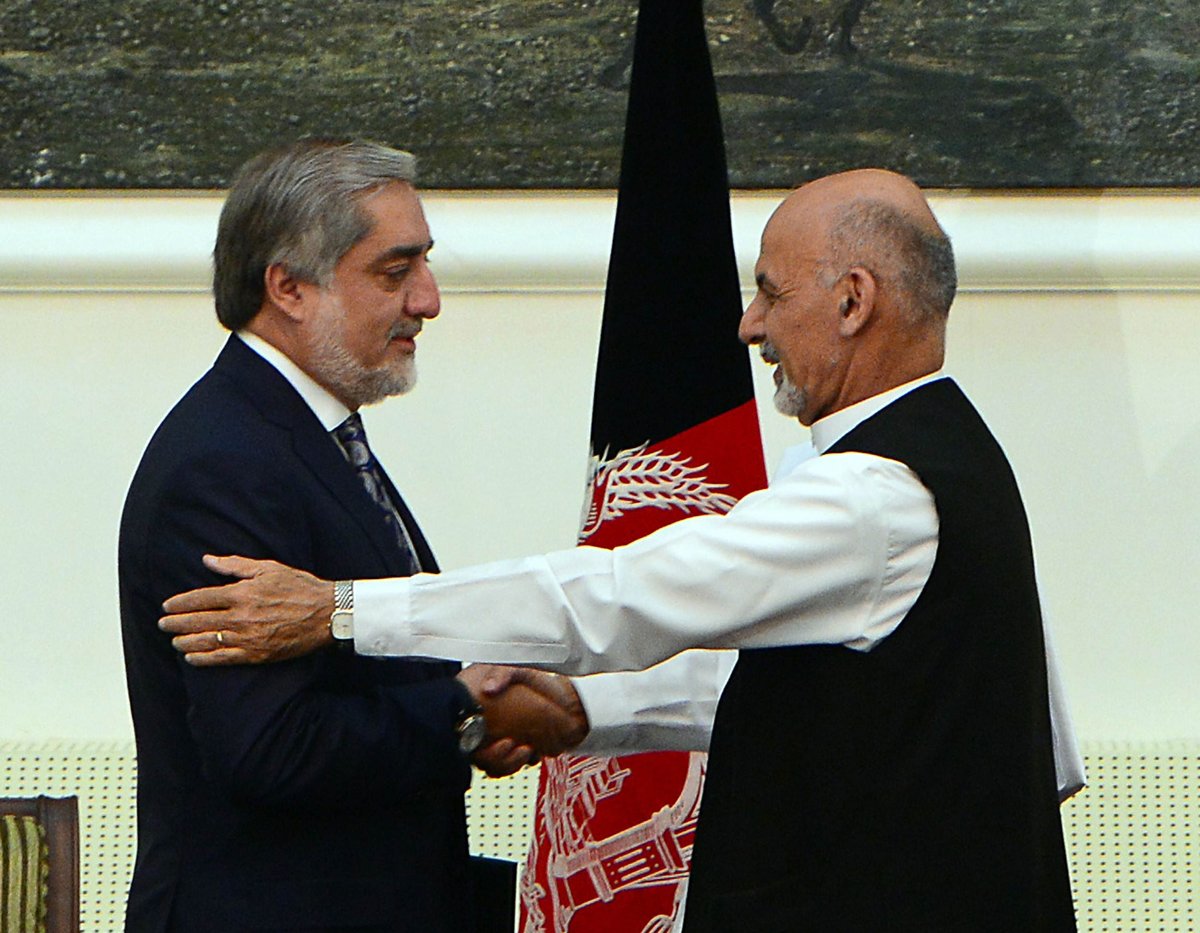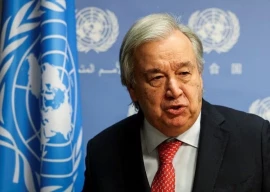
A list of 25 nominees has been released which has to be approved by parliament. Of these, three are women. Furthermore, the new arrangement is in line with the power-sharing deal brokered by the United States and gives both Ghani and Abdullah an equal share in the cabinet.

However, the nominations have come under fire as media and political analysts are of the view that the nominees were allegedly selected on the basis of ethnic and linguistic considerations. According to analysts, most of the nominees do not have the required expertise.
Nevertheless, some of the nominees include those who have a considerable amount of experience. For instance, Afghan High Peace Council head Salahuddin Rabbani has been nominated for the foreign ministry. He has previously served in the foreign ministry and as Kabul’s ambassador to Turkey. Noorul Haq Ulumi, a former parliamentarian and ally of Dr Abdullah, is another familiar face who has been chosen to lead the interior ministry. However, only one member from former prime minister Hamid Karzai’s cabinet has been accommodated. General Sher Mohammad Karimi, the army’s chief of staff, has been nominated for the defence ministry.
Stamp of approval
The confirmation of ministers is subject to parliamentary approval. The nominees are to appear before the Afghan National Assembly on Saturday (today). It is believed that some of the ministers are likely to face tough scrutiny as they have previously been accused of malpractices.
The Senate and National Assembly speakers have reportedly urged lawmakers not to give a vote of confidence to incompetent nominees. Meanwhile, ministers who have been nominated have started lobbying to win the support of MPs. At this critical juncture, the Afghan media fear that candidates could use illicit means to gain approval.
“The president and chief executive should not allow nominees to opt for financial deals with parliamentarians as it could increase the risk of financial corruption once they are elected,” read an editorial comment in Hasht-e-Subh, an independent newspaper.
Political analysts also expect a heated debate in parliament over the fate of those nominees who have dual nationality. The assembly has already passed a bill to prevent dual citizenship holders from becoming cabinet members. MPs would have to deal with the matter in a stringent manner.
Nazar Mutmaeen, who regularly writes on the state of affairs in Afghanistan, told The Express Tribune there are nearly 12 nominees who are completely new and lack influence and popular support.
“I strongly believe some ministers have been appointed on the advice of the US and its Western allies,” he said. “They had brokered the power-sharing deal in September and now want more influence.”
According to Mutmaeen, the unity government has nominated people who are practically unknown to the masses to serve their own vested interests. “These people will be sacked whenever the government feels they have become a burden on them,” he said.
Mutmaeen also believes former communist leaders have been given more preference over former Mujahideen leaders in the formation of the cabinet.
Mixed feelings
Political analysts and the media have mixed feelings about how effective the new cabinet is likely to be. Some believe the government has nominated ministers in a strictly unprofessional manner and gave preference to its political interests.
Mandegar, a Dari-language private newspaper, has billed the nominations to be contrary to the people’s expectations. It criticised the ethnic imbalance in the nomination, citing the fact that a majority of ministers are Pukhtun.
Similarly, Sarnawesht, an independent Pashto-language newspaper, insists most of the nominees have not been selected on the basis of “qualification and professionalism, but on the basis of ethnic and linguistic consideration”.
On the other hand, Arman-e-Melli newspaper has thrown its weight behind the new cabinet.
“The government has selected new personalities who are known to the people and have knowledge and experience in their respective fields. The people are fed up with the old leadership and do not want to see them in power again,” an editorial comment in the newspaper stated.
Some lawmakers have announced that they will not give a vote of confidence to anyone who has been involved in corruption. Ghulam Hussain Naseri, a lawmaker, told Ariana TV he does not expect much from the cabinet as most of the nominees lack the necessary experience.
Meanwhile, women rights activists are upset by limited representation for women in the cabinet.
Humaira Saqeb, a rights activist, told Tolo TV that the government has forgotten the sacrifices made by Afghan women who ignored threats to their own lives just to vote in last year’s elections.
Published in The Express Tribune, January 17th, 2015.
1728733539-0/BeFunky-collage-(4)1728733539-0-405x300.webp)


1723106292-0/kanye-(3)1723106292-0-165x106.webp)
1728377176-0/BeFunky-collage-(35)1728377176-0-165x106.webp)


1728733314-0/Copy-of-Untitled-(16)1728733314-0-270x192.webp)
1728724713-0/Untitled-design-(12)1728724713-0-270x192.webp)
1728728231-0/Copy-of-Untitled-(8)1728728231-0-270x192.webp)
1728722311-0/Copy-of-Untitled-(7)1728722311-0-270x192.webp)






COMMENTS
Comments are moderated and generally will be posted if they are on-topic and not abusive.
For more information, please see our Comments FAQ